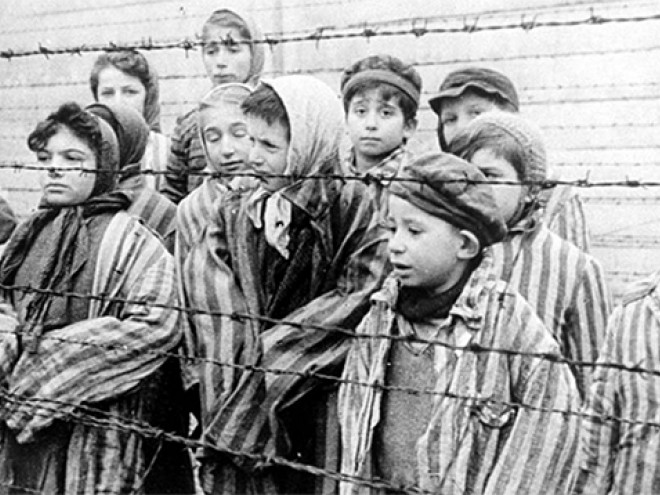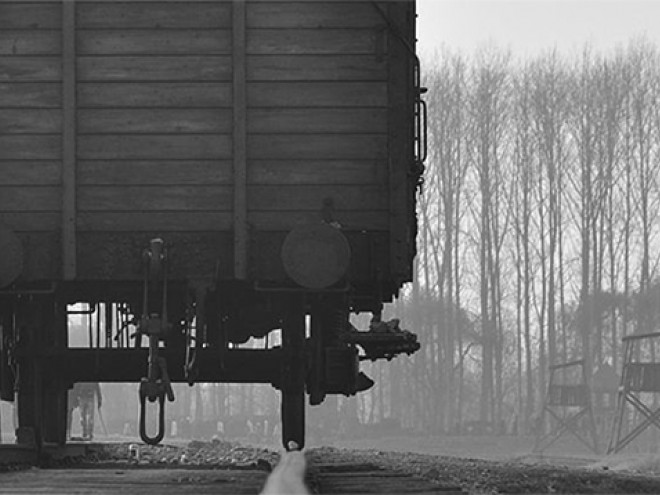Set in the autumn of 1944 and the first half of 1945, Affinity Konar’s fictional treatment of Dr. Josef Mengele’s maniacal experimentation on young twins and other victims incarcerated at Auschwitz is astonishing. Mischling (meaning “hybrid” or “mixed-blood”) is a novel based on carefully mastered research processed by the author’s artful and spiritually charged imagination. It is the most risk-prone type of coming-of-age tale that one is likely to encounter, held as it is in a nightmarish, post-apocalyptic frame.
The first half of the novel is set primarily within Auschwitz, in the dormitories, labs, and operating stations known as the Zoo. We meet the Zamorsky sisters, Pearl and Stasha, who have been temporarily saved from the usual work camp-to-execution passage due to Mengele’s mad interest in exploring the physical and psychological nature of twinship. He considers himself a rigorous scientist above all else, but it is clear that his perverted genius is driven by something quite different from a passion for scientific method. As the experiments go on, one twin loses much of her sight and hearing while the other loses the use of her legs. Mengele, who asks his charges to call him Uncle Doctor, works by taking the sisters away from each other, watching the consequences of their bonded natures being severed.
The tension between the twins’ identities as a twofold unit and as separate, distinct personalities is enhanced by the storytelling method. Konar alternates chapters narrated by Stasha and those narrated by Pearl. Their voices have an eerie blend of similarities and contrasts: each is constantly curious, and lives in search of the missing other — the missing part of the whole.
The narrow world of the Zoo section at Auschwitz is richly populated with other characters, all crippled in one way or another by Mengele. Some are properly feared by the twins, others form a kind of support system. Cooperation and creativity provide opportunities for small victories and keep the hope of survival alive. The fall of Auschwitz to Russian forces leads to the formation of dispersed clusters of escapees who encounter a precarious and challenging freedom. Moving from place to place in war-torn Poland, Stasha and Pearl each become part of small, distinct families born of circumstances first shaped in the Zoo. Their ability to build relationships and maintain hope in the midst of personal devastation and the devastation of Jewish peoplehood is related with the greatest insight and compassion by their creator.
Although the damage the twins suffer makes Mischling difficult to read, the seduction of Konar’s literary skill surpasses the harsh details of Dr. Mengele’s Auschwitz experiments. Every word counts, and every phrase orchestrates images and emotions in a way that seems to awaken language itself. While the ugliness of the story might push readers out, the spell cast by the author’s verbal wizardry pulls them back in. Daring in concept and method, Konar has honed in on the perfect blending of inspiration, vision, and technique to pen a unique masterpiece.
Visiting Scribe: Affinity Konar
Philip K. Jason is professor emeritus of English at the United States Naval Academy. A former editor of Poet Lore, he is the author or editor of twenty books, including Acts and Shadows: The Vietnam War in American Literary Culture and Don’t Wave Goodbye: The Children’s Flight from Nazi Persecution to American Freedom.




